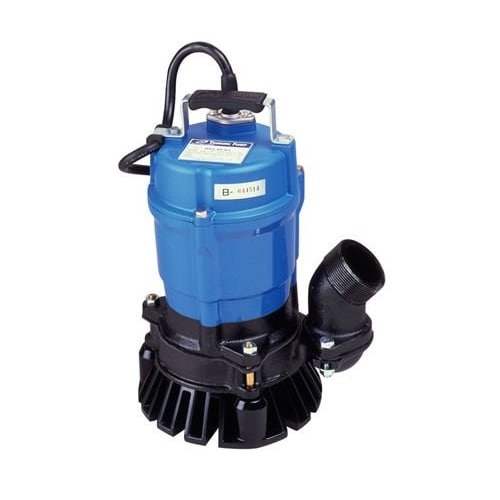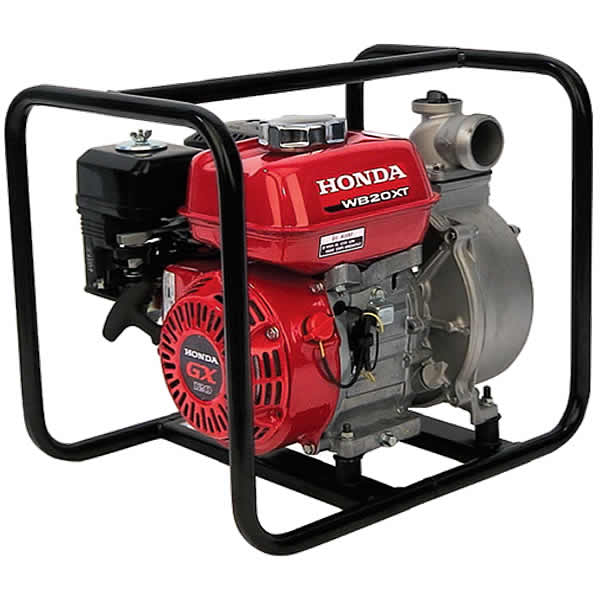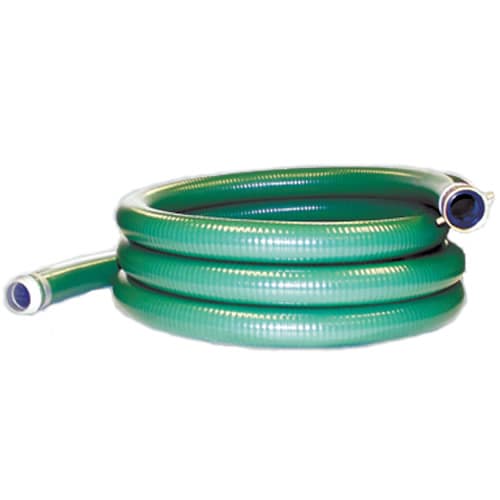
Water Pump Buyer's Guide
Welcome to the world of water pumps; we're glad you're here!
Water pumps are extremely versatile tools that can solve a variety of problems and make your life easier than you ever thought possible.
From sprinkler pumps for your lawn to trash pumps on the job site, submersible utility pumps, firefighting pumps, or water pumps for flood cleanup, all water pumps are the perfect tools for moving water from one place (a basement) to another (outside).
How to Choose a Water Pump
There are many different factors to take into consideration in order to pick the perfect water pump for your desired application. The most important factors are outlined in the sections below.
Electric Water Pumps
 Electric-powered water pumps are great for indoor use. Most are 120V, capable of being plugged into a standard household outlet. If you opt for the 230V variety, make sure you have the electrical wiring to support it. Although not as powerful as gas-powered models, electric water pumps will require less maintenance as you won't have to worry about oil changes and other upkeep. You'll need to operate these within an extension cord's length from an electrical source so if you have mobile pumping needs, go with a gas-powered model.
Electric-powered water pumps are great for indoor use. Most are 120V, capable of being plugged into a standard household outlet. If you opt for the 230V variety, make sure you have the electrical wiring to support it. Although not as powerful as gas-powered models, electric water pumps will require less maintenance as you won't have to worry about oil changes and other upkeep. You'll need to operate these within an extension cord's length from an electrical source so if you have mobile pumping needs, go with a gas-powered model.
Gas Water Pumps
 Gas-powered water pumps are commonly found at job-sites and farms for irrigation purposes. With powerful engines in-tow, these pumps can move as much as 750 gallons of water per minute (GPM). If you need to move a lot of water, like a flooded basement, a gas-powered dewatering pump is exactly what you need. Important: Gas-powered pumps produce carbon monoxide emissions, so they must be used outdoors.
Gas-powered water pumps are commonly found at job-sites and farms for irrigation purposes. With powerful engines in-tow, these pumps can move as much as 750 gallons of water per minute (GPM). If you need to move a lot of water, like a flooded basement, a gas-powered dewatering pump is exactly what you need. Important: Gas-powered pumps produce carbon monoxide emissions, so they must be used outdoors.
Water Pump Applications
The second most important thing to consider when choosing a water pump is the application you need it for. There are many types of water pumps, and all are built for specialized applications. Click on the links below to learn more about each type of water pump and their most common applications:
- Dewatering Pumps that move clean water from place to place
- Trash Pumps for moving large amounts of dirty water quickly
- Power Takeoff (PTO) Pumps that are powered by tractors
- Submersible Utility Pumps for various water removal applications
- Booster Pumps for increasing pressure to your water fixtures
- Sprinkler Pumps for watering lawns, gardens, or farmland
- Well Pumps for shallow and deep well systems in homes
- Specialty Water Pumps for ponds, fountains, sprinklers, pool covers, and more
How to Properly Size a Water Pump
The next step to picking out the right water pump is to make sure it is sized correctly. The most important factors to consider when sizing a water pump come down to GPM/PSI ratings, inlet/outlet size for water and hoses, how high you'll need to pump the water (measured in vertical feet), referred to as total head lift, and how far you'll need to pump the water horizontally.
Important Ratings to Look Out For
Total head lift (THL), suction head (SH), and gallons per minute (GPM) ratings are all important measurements to guide you when sizing any water pump because they help determine how much water the pump is capable of moving, and how quickly the pump can accomplish the task.
Suction Head is the vertical distance pumped from the water source to the pump. The higher you need to pump water, the harder the pump fights gravity to do so. This number is particularly important for deep well applications or draining a pond.
Total Head Lift is the total height from the water source to the final destination This number will give you the estimated "power" a pump has to move water over a distance.
Gallons Per Minute is a measurement of how many gallons the pump can move per minute.
How to Choose an Inlet/Outlet Size
 If the water pump you need has different inlet/outlet size options, all you need to know is that no matter their size, they all work the same way. The water pump sucks in water through an inlet valve and ejects it from a discharge valve. A 4-inch dewatering pump can potentially finish a job much faster than a 1-inch pump. Also, remember that whatever size inlet your pump has, you must use that size inlet or suction hose. You should NEVER reduce the diameter of the inlet/suction hose.
If the water pump you need has different inlet/outlet size options, all you need to know is that no matter their size, they all work the same way. The water pump sucks in water through an inlet valve and ejects it from a discharge valve. A 4-inch dewatering pump can potentially finish a job much faster than a 1-inch pump. Also, remember that whatever size inlet your pump has, you must use that size inlet or suction hose. You should NEVER reduce the diameter of the inlet/suction hose.
Water Pump Accessories
There are many accessories that are supplied for pumps to make them more useful and versatile than ever. With most dewatering pumps you'll need a discharge hose and an inlet hose, potentially a suction strainer to keep solids out of the pump, or for situations when using a gas water pump to pump out a basement, you'll need a hose kit that allows you to place the pump outdoors while using a suction hose and strainer remotely.
For pumps that go in homes, like well pumps, booster pumps, and jet pumps, you may need check valves, float switches, or water alarms. Or, you may fancy yourself a replacement wheel kit, a hydraulic power unit, an impellor kit, or a control box for an electric plugin. No matter what you might need for your water pump, we've got you covered.
![]() NEXT: View the Best Water Pumps of The Year
NEXT: View the Best Water Pumps of The Year





